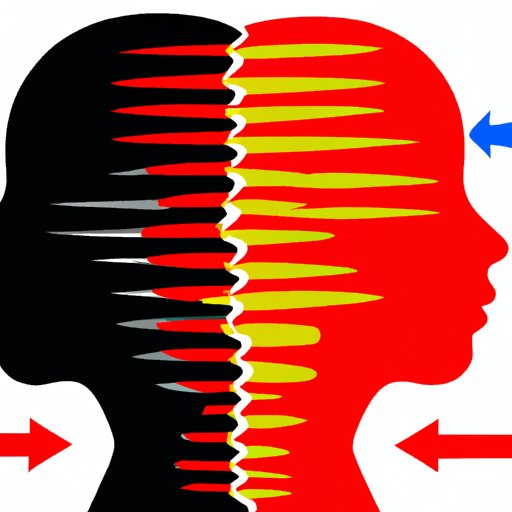I. Introduction
Our personalities are an essential part of who we are, shaping how we think, feel, and behave. While some traits seem ingrained from birth, others are developed over time through experience, culture, and socialization. In this article, we will explore how personality is developed and the factors that contribute to our unique traits.
This article is intended for anyone interested in personality development and its role in shaping our lives. Whether you are a student, a professional, or just curious about the topic, this article aims to provide a helpful and informative overview of the science behind personality development.
II. Nature vs. Nurture: The Science Behind Personality Development
The age-old debate of nature vs. nurture is at the heart of personality development. Some believe that our personality is determined by our genetics, while others argue that our environment plays a more significant role.
Research indicates that both nature and nurture contribute to personality development. While genetics may influence some personality traits, environmental factors such as family, culture, and experiences also play a crucial role.
It is essential to understand the interplay between nature and nurture to gain a comprehensive understanding of personality development.
III. The Impact of Childhood Experiences on Personality
Childhood experiences are significant in shaping our personalities. Positive experiences, such as a secure attachment with caregivers, can promote healthy personality development, while negative experiences, such as neglect or abuse, can hinder it.
Childhood trauma can also have lasting effects on personality development. It can lead to negative self-beliefs, fear, and anxiety, making it challenging to develop healthy relationships and coping mechanisms.
However, it is never too late to heal from negative experiences and develop a healthy personality. Seeking therapy, practicing self-care, and developing healthy habits can aid in healing and promoting healthy personality development.
IV. Exploring the Connection Between Personality and Birth Order
Does birth order impact personality development? Many believe that it does. Research indicates that birth order can influence personality traits in significant ways.
First-born children tend to be more responsible and achievement-oriented, while later-born children may be more creative and independent. Middle-born children often develop strong negotiation skills and are adept at adapting to change.
While birth order may play a role in developing our personalities, it is essential to remember that other environmental factors also contribute to personality development.
V. Personality Development: The Role of Culture and Society
Cultural and societal norms influence our personalities in many ways. For example, gender roles and societal expectations may influence personality traits such as assertiveness or emotional expression.
Breaking free from limiting cultural and societal norms may be necessary for promoting healthy personality development. Developing an awareness of one’s culture and societal expectations can aid in breaking free from limiting beliefs and promoting individual growth.
VI. How Personality Impacts Our Relationships
Our personalities play a significant role in our relationships. Understanding one’s own personality type and the personality types of others can aid in building healthy relationships.
For example, introverts may need more alone time to recharge, while extroverts may need social interaction to feel energized and motivated. Recognizing these differences can aid in building strong connections and understanding each other’s needs in relationships.
VII. Changing Your Personality: Is It Possible and How?
The possibility of changing one’s personality is a topic of much debate. While personality traits may be ingrained from birth, it is possible to change or modify them through various therapeutic approaches.
Therapies, such as cognitive-behavioral therapy, can aid in identifying negative thought patterns and promoting positive change. Additionally, practicing self-reflection and personal development practices such as mindfulness and meditation may help promote positive personality change.
VIII. Conclusion
Personality development is a multifaceted topic that requires a comprehensive understanding of various factors. While genetics may play a role in shaping personality traits, experiences, culture, and societal norms also contribute to our unique personalities.
Understanding personality development is essential for building healthy relationships, promoting self-awareness, and developing a fulfilling life. With the help of therapy and personal development practices, it is possible to change negative personality traits and promote positive growth.
(Note: Is this article not meeting your expectations? Do you have knowledge or insights to share? Unlock new opportunities and expand your reach by joining our authors team. Click Registration to join us and share your expertise with our readers.)
